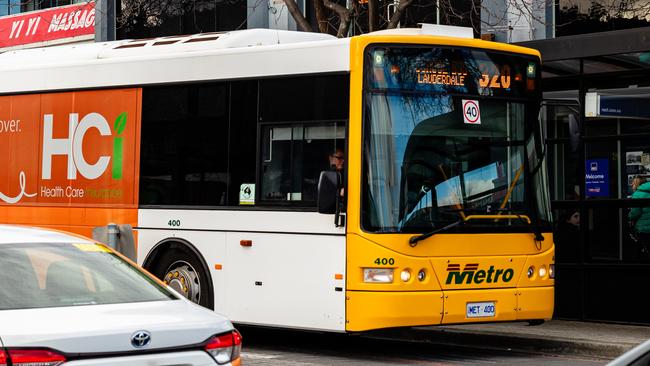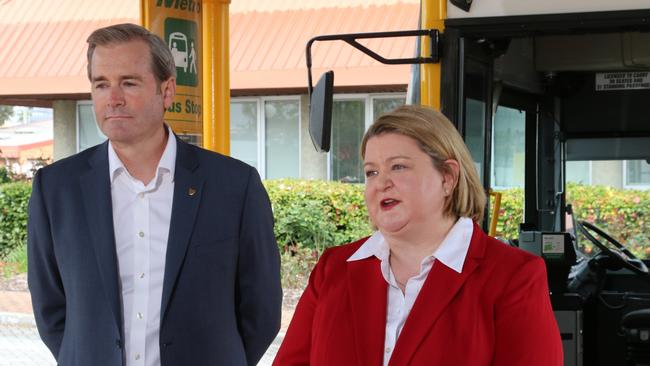Metro Tasmania reports after-tax loss after challenging year amid big drop in passenger satisfaction
The wheels on the bus fell off for Metro Tasmania in the past financial year, but the public transport operator is optimistic of better times ahead. See the key figures from its annual report.

Tasmania
Don't miss out on the headlines from Tasmania. Followed categories will be added to My News.
The fortunes of Metro Tasmania have taken a nose dive with the bus operator reporting an after-tax loss of $1.43m, declining passenger satisfaction, and anti-social behaviour remaining a “serious concern”.
But in its annual report for 2022–23, tabled in parliament, the government-owned business says it predicts better times ahead.
The loss follows an after-tax profit of $2.44m in 2021–22 and comes in the wake of a year in which timetables have been slashed because of a shortage of drivers.
Patronage is only at 81 per cent of pre-pandemic levels but there were nearly seven million passenger journeys last financial year – up 0.7 per cent on the previous year.
Metro chair Tim Gardner and CEO Katie Cooper point to the impact of Covid, fares staying the same but costs rising for the loss.
“2022–23 has been a challenging year at Metro as we continue to manage a number of difficult head winds operationally and financially,” they said.

“However, we continue to make progress in our modernisation journey and are confident that we are setting strong foundations to grow and build towards a better Metro.
“Whilst Metro remains confident in its capacity to fulfil its vision to be a customer-centric public transport provider, there are clear structural financial and operating deficiencies that have been brought to the fore in Metro’s performance this year.
“The apparent permanent impact of Covid-19 on patronage and the subsequent reduction in fare revenue has been compounded by the static fare prices and rising costs.”
After a record overall satisfaction of 82 per cent last year it dropped to 63 per cent which Metro said “reflects the ongoing service disruptions experienced throughout the year”.
“The impact to our customers from service disruptions and heightened perceptions of anti-social behaviour were all contributing factors to this disappointing result,” it said.
“Metro will continue to work to improve reliability and to continue its proactive communication with its customers with an aim to achieving a better result in the next survey.
“Anti-social behaviour is a serious concern for Metro, our customers and the community.
“Metro has taken the initiative to co-design a program with a psychologist and frontline employees on how to understand and de-escalate challenging behaviour.”
On a positive note Metro said it was progressing well with plans to trial zero emissions buses using battery electric bus (BEB) and hydrogen fuel cell electric bus (FCEB) technology.
The report showed Ms Kelly’s total package was $315,000 and Mr Gardner was paid $56,000 as chair.
More Coverage
Originally published as Metro Tasmania reports after-tax loss after challenging year amid big drop in passenger satisfaction





